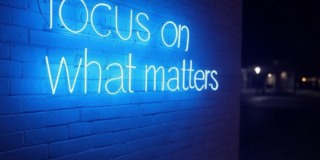
In a significant and controversial announcement, Oklahoma Superintendent Ryan Walters declared that Oklahoma will become the first state in the United States to reintroduce the Bible into public school classrooms. This initiative has sparked a heated debate about the role of religion in public education, raising fundamental questions about the principles of secularism, the separation of church and state, and the educational objectives of our public school systems.
Superintendent Walters stated, “Our kids have to understand the role the Bible played in American history.” While it is undeniable that the Bible has had a profound influence on various aspects of American culture, literature, and history, the question remains: should this influence be integrated into public school curricula? The implications of such a decision are far-reaching and warrant careful consideration.
Public education in the United States has long been grounded in the principle of secularism, which asserts that the government should remain neutral in matters of religion. This separation of church and state is enshrined in the First Amendment of the Constitution, which prohibits the establishment of religion by the government. The introduction of the Bible into public school classrooms challenges this foundational principle and raises concerns about the potential for religious indoctrination within an educational environment that is meant to be inclusive and diverse.
Furthermore, the teaching of history should be rooted in factual accuracy and critical analysis rather than in religious texts. While the Bible may be referenced in discussions about historical events, such as the influence of religious movements on social and political developments, it should not serve as a primary educational resource. Instead, a more balanced approach that encompasses a wide range of perspectives, including secular, religious, and cultural viewpoints, would provide students with a comprehensive understanding of history.
Moreover, the reintroduction of the Bible into public education may alienate students from diverse religious backgrounds or those who identify as non-religious. In a pluralistic society, it is essential that our public schools reflect the diversity of beliefs held by their students. An educational system that prioritises one religious text over others risks marginalising students who do not share that belief, ultimately undermining the principles of equality and respect for all individuals.
Additionally, the focus on the Bible in public education could divert attention from critical educational objectives, such as fostering critical thinking, creativity, and problem-solving skills. Students should be encouraged to explore a variety of texts and ideas, developing their ability to analyze and synthesize information from multiple sources. An education that emphasizes one particular religious text may limit students’ intellectual growth and their ability to engage with the world around them.
While it is important for students to understand the historical context in which religious texts like the Bible have played a role, the incorporation of such texts into public school curricula raises significant ethical and educational concerns. The principles of secularism, inclusivity, and academic rigour must be upheld in our public education system to ensure that all students receive a fair and equitable education. As the debate surrounding this issue continues, it is crucial for educators, policymakers, and communities to engage in thoughtful dialogue about the future of public education and the role of religion within it. The focus should remain on fostering an environment where all students can thrive, learn, and grow, free from the influence of any particular religious ideology.


